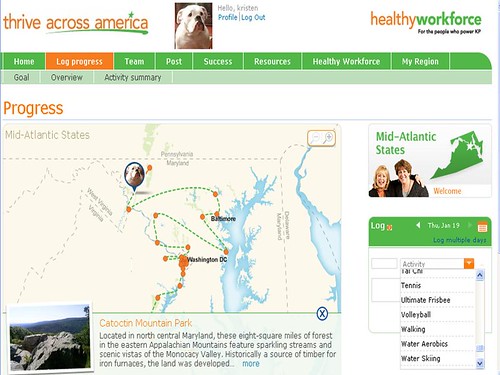I have worked for Kaiser for over 20 years now and have been a KP Member for 31 years. I can say in all honestly we haven't always done a great job of telling OUR KP story and, to be quite frank, there were times when we didn't have a great story to tell. I believe stories are the most effective vehicle to drive the heart of a message to the heart of an audience. A good story will inspire people to action or conjure up an emotional connection that leaves a lasting impression on the listener. I'm so proud to say the tides have turned and not only do we have one hell of an amazing story to tell, we are learning how to tell it.
Kaiser Permanente not only tells our story from on organizational and marketing perspective, like through our Thrive ads, but we have engaged patient's to share THEIR KP story on our new KP CARE STORIES video blog. In about a month or so, we will start showing videos in our waiting rooms that have our patient's, like Dale Gordon and Mary Gonzales, sharing their stories. Think about someone waiting in the pharmacy to pick up their prescription, holding on to this colon cancer screening kit their doctors medical assistant just gave them. The dread of having to "scoop some poop" to complete the test or even the thought of just tossing the kit out "because there is no way I'm going to scoop poop" may be weighing on their minds and then... a video of Dale Gordon telling his emotional story of how that one little (admittedly uncomfortable) test saved his life. That patient goes home determined to complete the test. Now that is a power of story persuasion.
This morning, I read an Ideabook blog by Tim Ho that "drove the heart of message to the heart of an audience". Tim's blog yanked on my heart strings and filled me with pride for the company we work for, the great people who come together to care for our members, and for the lives we save. Here's a quote from Tim's blog that I hope will make you curious enough to subscribe to his blog like I do!
"That's funny," I thought, "I didn't know that this patient had colon cancer." I opened his chart and went on a journey to find out what happened. I'd like to share my journey with you and hope that it helps you understand why we are here at Kaiser Permanente and why we can do more together in this crazy, complex system than we can ever do on our own.
Thanks Tim for taking the time to share your daily blogs. KP should be honored to have you here to help share our story.




